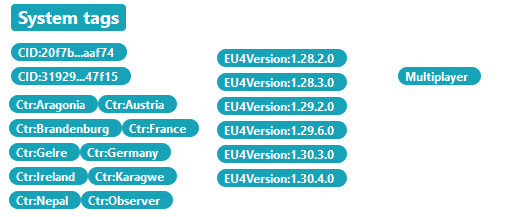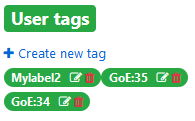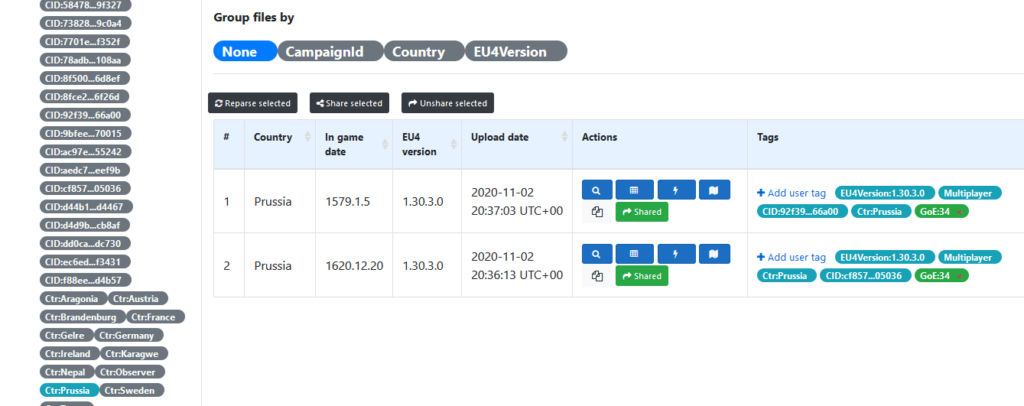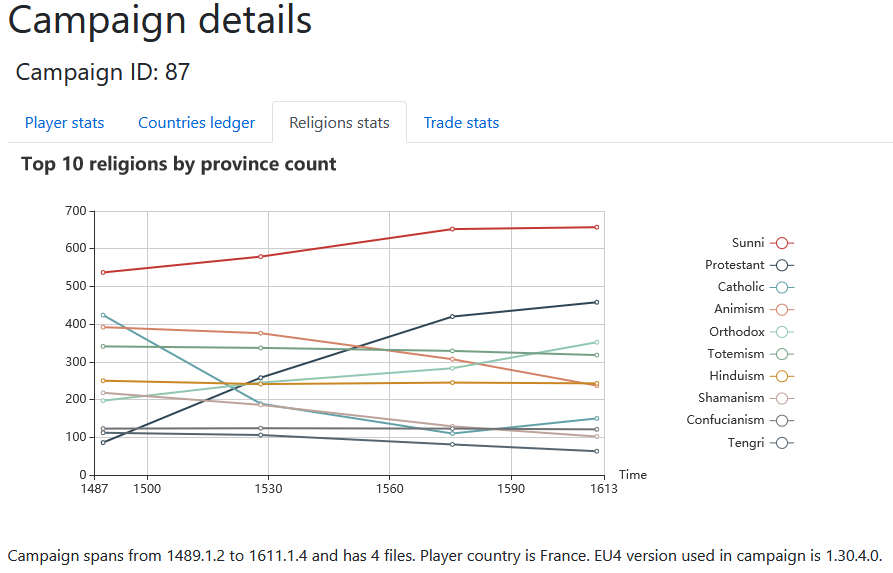I have completed the tagging feature of the PDXGA. There are two types of tags – system tags and user tags. System tags are attached to files during parsing process and currently they include:
- file version (which version of EU4 saved filed)
- single-player campaign ID
- player country
- multiplayer flag

User tags are free text tags that can be defined by the user and applied to any number of files. For example, you can create a tag named “Multiplayer:sunday_games” to mark all files from the multiplayer games you play on Sunday afternoons with your friends. Or you can create a tag named “World_Conquest” to mark all saves related to your attempts to get this rare EU4 achievement.

Why tags?
One may ask what good tags are for? There are three reasons I though they are important:
- to organize files in a flexible way
- to quickly filter and group files
- to view all files from multiplayer campaign together
Organizing files by tags has already been explained in the above examples. I have added two elements to the user files view – filter by tag and group by tag. Clicking on the tag will only show files with this tag attached – this allows to quickly find saves. Some of the system tags also has special property of being grouping tags. Single-player campaign ID, player country, and save version are tags by which you can group files, which again makes it easier to find the right save if you have a lot of them.

But that is not all – if the tag contains magical “:” in the name, it can be used for one more thing – the multi-file view. In the initial versions of PDXGA there was single-player campaign view where you can display all files coming from the same single-player play-through. This is still possible (as the system tag for Campaign ID has the “:” in the name 😉 ) but now if you create your own tag with the “:” in the name, it can be used in the same way. Referring back to the example from the beginning of the blog, if you filter files by “Multiplayer:sunday_games” tag, you can open a view where all those files will be treated as a part of a single play-through. This opens the whole new possibilities of analyzing multiplayer campaigns, going beyond the per-file analysis. See the example below.

That’s almost all for today – one more minor feature that has been added are the bulk actions, so now you can share, unshare and reparse multiple files at once – based on the currently applied tag filters.
Next week I will be wrtiting about the roadmap towards the end of 2020.
